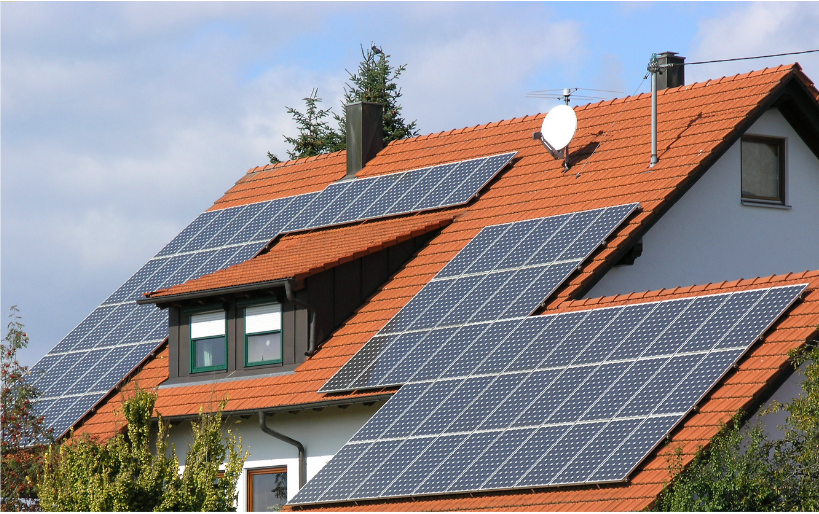The solar lease is a relatively new financial mechanism introduced into the world of solar integration. At Renova, we offer several finance solutions that allow our customers the ability to install a solar system in their home in as little time as possible, and for years, we’ve carefully and confidently vetted the financing options we thought carried merit.
These are the questions our own solar experts ask when evaluating both Lease and Power Purchase Agreement options.
Questions Every Homeowner Should Ask When Considering Solar Installation
Since homeowners do not usually have an attorney or accountant review the agreements, the following questions are good questions to ask if you are considering a lease or power purchase agreement to have a solar system installed on a home.
Installation
- Who is the installation company? (Not all financing companies have a contractors’ license, so they will contract with an installation company to perform the construction work.)
- Does the contractor have a license to install solar?
- Does the contractor have workers’ compensation insurance?
- Is the contractor reputable and has a good track record for installations?
- Can the contractor file a mechanics lien against the house?
- Is there a separate contract for the installation of the system?
Contract terms
- What is the assumed inflation (sometimes called escalation) rate for solar electricity payments? (If the solar electricity payments escalate faster than the utility electric rates can the homeowner end up paying more for electricity over the life of the contract because they bought a solar system?
- Does the contract obligate the homeowner to buy the system at the end of the contract? How much will the homeowner be expected to pay at the end of the contract? (Some contracts will state that the homeowner must pay the fair market value for the system. What is the value of the system after 10 years? 15 years? What is the actual cash price at the end of the term (not adjusted down for the value of money)?
- What happens if the homeowner refinances the house? Are there any clauses or language in the agreement restricting this? Are there any documents that the bank or appraiser will need?
- Who is insuring the system in the event of damage (due to accidental damage to the home or vandalism, for example)? Does the homeowner have to pay for any or all damages? What should the homeowner report to their insurance company? Assuming the company insures the system, will the homeowner receive a certificate of insurance naming the homeowner on the company’s insurance policy?
- Who is responsible for the warranty of the system? Is the warranty to the homeowner from the installer, or is the warranty from the installer to the leasing or PPA company? Who does the homeowner file a claim against if there’s a problem, like a roof leak? Has the company had any claims? How have they been handled?
Terms of the Contract
- Are there any costs to buy out the lease or PPA early in the first 5 years? If the homeowner buys out the lease or PPA in the first 5 years, will they have to also pay the company for the loss of the tax credits and depreciation?
- What is the implicit interest rate that the homeowner is paying in the lease/PPA?
- What happens if the homeowner needs a new roof and the system needs to be moved? Who will cover the module warranties if the modules are moved? (Many module manufacturers void the warranty if the modules are moved).
- Whose responsibility is it to restore the roof and replace shingles or tiles if the homeowner decides to have the system removed at the end of the term?
Sale of Home during Term of Contract
- What happens if the homeowner sells their home?
- Can the contract be sold or assigned to someone else if the house is sold? What is the qualification process/what are the requirements for a new party assuming the lease/PPA?
- What if someone wants to buy the house but doesn’t qualify to assume the lease/PPA?
- What if someone who wants to buy the house but doesn’t want the solar system?
System Performance
- Does the company provide production guarantees? How is that tracked, and does that affect the monthly payments that the homeowner makes (i.e., will the monthly payment be adjusted if the system underperforms?
- Is the homeowner responsible for any of the maintenance or monitoring?
- Assuming the homeowner monitors the system, if there are production issues, what is the company’s response time?
Fiscal Condition of the Financing Company
- Is the company financially sound?
- Can the company sell the contract to a new entity? Will the homeowner be notified?
- What happens if the leasing company or PPA company goes out of business?
- Could the system be repossessed or removed if the PPA/leasing company gets into financial trouble?
- Does the company maintain a reserve account for repairs? How much is set aside for repairs, and are the funds kept in an escrow account?
Solar installation is a huge investment, so it’s important to thoroughly vet the financing and installation company. However, you can be confident when working with Renova Energy.
Renova prides itself on being the Coachella Valley’s most trusted residential and commercial solar installation company; our reputation speaks for itself! Contact our office today to learn more about switching to solar.


